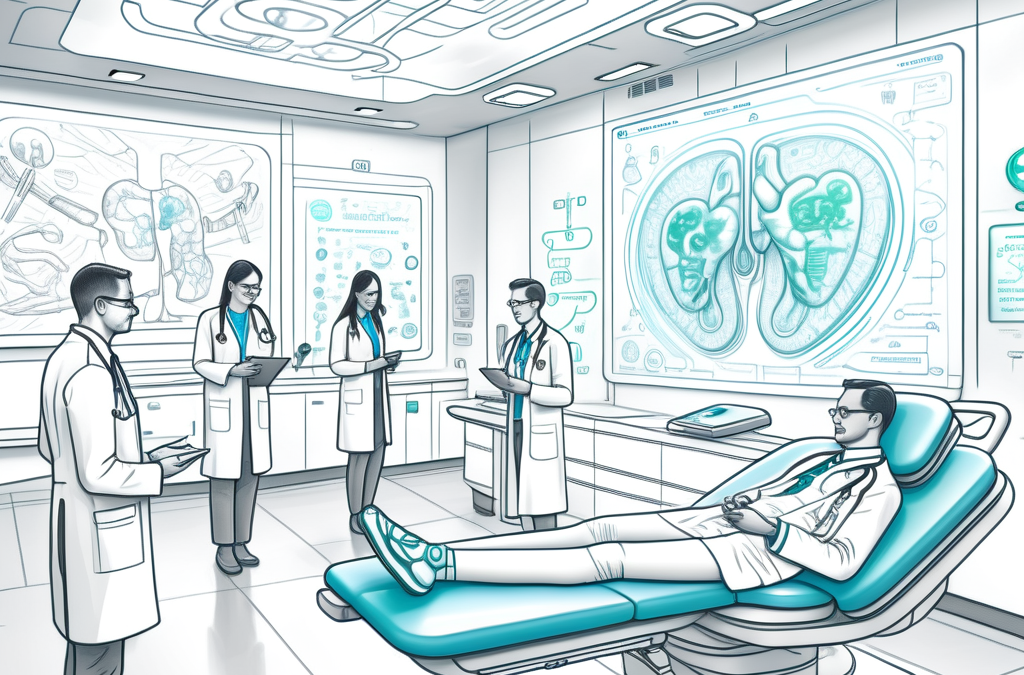Artificial Intelligence (AI) is not just a buzzword; it’s a game-changer that’s making waves in the world of healthcare. Picture this: a future where doctors can diagnose diseases in a heartbeat and tailor treatments specifically for you, no matter where you live. This isn’t a scene from a sci-fi movie—it’s the incredible reality that AI is helping to build! With the power to analyze vast amounts of data faster than any human could, AI is enhancing the way we approach medical care. From spotting diseases earlier to ensuring that everyone has access to quality healthcare, the potential of AI in medicine is nothing short of exhilarating.
The Marvels of AI: Speeding Up Diagnoses and Treatments
AI is revolutionizing medical diagnosis in remarkable ways. Here are some key points:
- Image Analysis: AI systems are capable of examining medical images like X-rays and MRIs with impressive accuracy, often detecting conditions such as cancer as well as, if not better than, seasoned radiologists.
- Real-World Impact: While research supports the effectiveness of AI, it’s important to note that outcomes can vary based on technology and datasets, highlighting the need for ongoing validation and improvement.
This speed and precision not only help doctors diagnose issues faster but also lead to earlier treatments, which can dramatically improve patient outcomes.
Personalized Medicine: Tailoring Health Solutions with AI
Imagine if your treatment plan was designed specifically for you, based on your unique genes and lifestyle! Thanks to AI, this is becoming a reality:
- Customized Treatment Plans: AI can analyze vast amounts of patient data to predict which treatments will be most effective for individuals.
- Success Stories: Early successes in tailored cancer therapies illustrate how personalized medicine can lead to better results and fewer side effects.
Telemedicine: Bridging Gaps in Access to Care
AI is changing the game in telemedicine, making healthcare more accessible than ever:
- Virtual Consultations: Patients can now consult specialists without the long journeys that often come with seeking medical help.
- AI Chatbots: These tools help with everything from answering questions to scheduling appointments and sending medication reminders, thus facilitating easier access to care.
Tackling Challenges: Data Privacy, Bias, and Integration Issues
The integration of AI in healthcare is groundbreaking, but it also poses significant challenges:
- Data Privacy and Security: As AI systems manage sensitive patient information, safeguarding this data is crucial to maintain trust in the healthcare system.
- Bias in AI Algorithms: Ensuring AI is trained on diverse and inclusive datasets is vital to avoid unequal treatment options across different patient groups. Real-world examples of algorithmic bias can illustrate the importance of this issue.
- Regulatory Challenges: Navigating the strict regulations in healthcare can slow innovation. Agencies like the FDA are working on guidelines specifically for AI technologies, but compliance can be complex.
Paving the Path Forward: The Promising Future of AI in Healthcare
The future of AI in healthcare is filled with amazing possibilities:
- Enhanced Integration: Future AI systems may seamlessly connect with existing medical technologies to improve patient care.
- Wearable Technology: Devices like smartwatches could monitor health continuously and alert healthcare providers before serious issues arise, allowing for timely interventions.
Conclusion
As we conclude our exploration of AI in healthcare, it’s clear that we stand on the verge of an incredible transformation poised to redefine medical practice. The innovations we’ve discussed—like AI-assisted diagnostics and personalized treatment plans—are just the beginning. While the benefits of AI are thrilling, we must also navigate challenges like data privacy and algorithm bias.
You, the next generation of tech enthusiasts, have the opportunity to be at the forefront of this revolution. Whether you’re interested in developing innovative AI tools, addressing ethical concerns, or advocating for equitable access to healthcare technology, your contributions are vital. Together, we can create a future where technology and compassion work hand in hand to enhance patient care. The journey ahead is bright, and the role you play in shaping the future of healthcare is crucial. Embrace the adventure and let your ideas lead the way to a healthier tomorrow.


